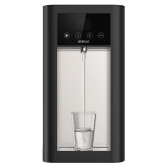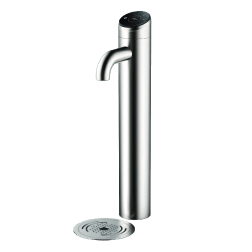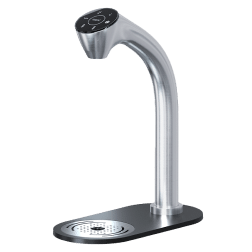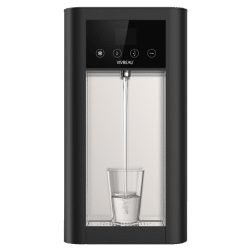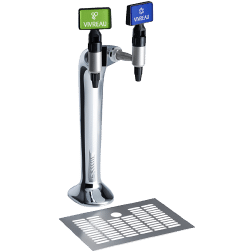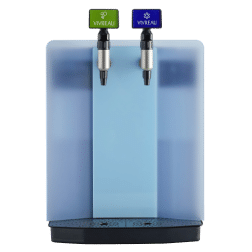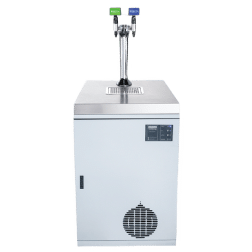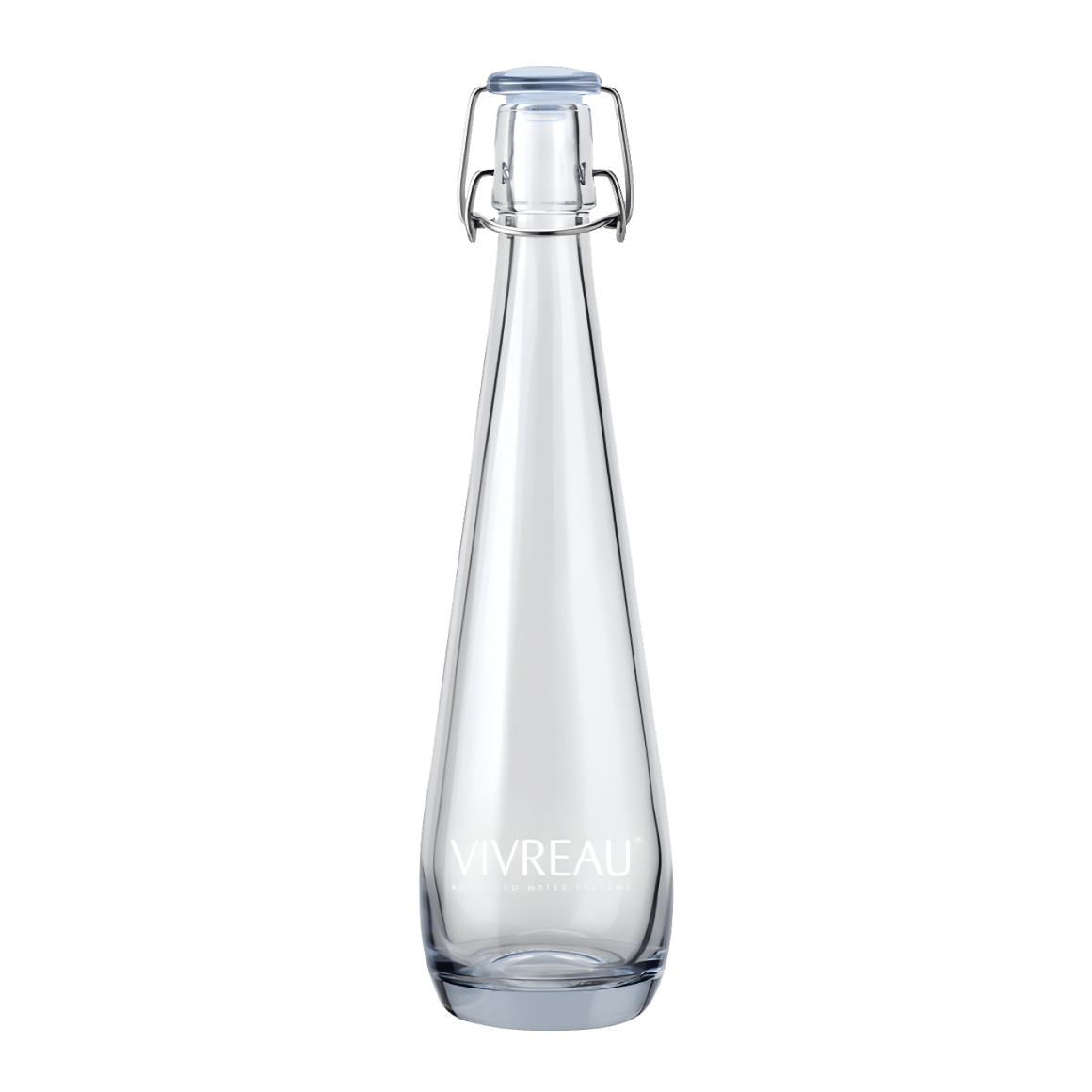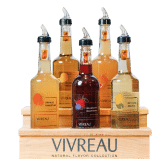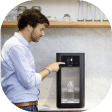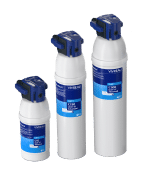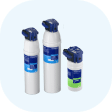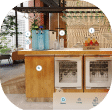Q&A on Cooking Performance, Equipment Longevity, and the Hidden Role of Water
Combination steam ovens, often called “combi ovens”, are a powerhouse in modern kitchens, combining convection heat and steam to cook food with precision. But did you know the quality of your water could be impacting the flavor, texture, and even the longevity of your combi oven?
We sat down with John Kearns, Learning and Development Manager, from Smart Care, and Ryan Wolfrum, East Coast Business Development Manager & Water Quality Specialist, from Vivreau, to explore this essential connection.
Q: What is a combi steam oven, and why is it such a versatile tool?
John: A combi oven is a multi-function appliance that uses convection, steam, or a combination of the two to cook food. It can replace several pieces of equipment, like steamers, proofers, and holding cabinets, and it delivers consistent, precise results. It’s essentially the kitchen’s multitasking MVP.
Q: How does the water quality affect the food in a combination oven?
John: Poor water quality can introduce off-odors and flavors into steam, which can settle on food and mute the intended taste experience. Steam cooking may not transfer flavor directly, but water that smells or tastes bad can still degrade the overall quality of the meal.
Ryan: Even trace levels of chlorine or chloramines in unfiltered water can impact food flavor, particularly delicate proteins and baked goods. Filtration tailored to your region’s water makeup—such as activated carbon for chloramine or softening for calcium—ensures steam-enhanced cooking doesn’t come with side effects.
Q: What are the visible signs that water quality is causing issues?
John: Discoloration like white, red, or black streaks inside the oven is a key sign. These indicate buildup from minerals such as iron or manganese. Hard water can also make food soggy or limp, and poor steam quality can ruin texture.
Q: What kind of damage can poor water quality do to your combi oven?
John: Scale is the biggest culprit. It can coat heating elements, sensors, and gaskets, reducing energy efficiency and shortening the life of your oven. Over time, this leads to inaccurate cooking temperatures, brittle door gaskets, and expensive service calls.
Ryan: Chloramines also have a negative effect on equipment- it is an oxidizing agent and can even effect stainless steel. Chloramines can degrade elastomer and plastic parts, causing leaking, malfunctions of parts such as valves and switches, and even breakdowns.
Further reading from Vivreau:

Q: Can water quality affect baked goods and pastries?
John: Absolutely. In baking, precision matters. Steam is vital during proofing and finishing, and any variation in steam quality can ruin texture and appearance. Bakers choose specific ingredients with care, your water should meet the same standard.
Ryan: That’s why we often recommend the Vivreau PURITY C Advanced Steam to bakery clients, it ensures consistently high-quality steam without scale or off-flavors, helping preserve the integrity of delicate baked goods. It’s an invisible ingredient that makes a visible difference.
Q: How can kitchens assess their water quality?
John: Start with a professional water quality test. Municipal reports are helpful, but water can change as it travels through pipes and buildings. Look for patterns in service records and talk to service techs about common water-related issues in your area.
Ryan: We always advise operators to test the water at the point of use—what comes out of the tap is what hits your oven. Our team provides on-site testing kits to help tailor the right solution.
Q: What specific water problems should operators watch for?
John: Look for signs of scale, mineral buildup around gaskets or drains, and haze on oven glass. Inspect fan wheels and internal surfaces for residue. These are early signs your water may be damaging your oven or affecting performance.
Ryan: These issues are often resolved by adjusting your filtration system, not your equipment. For combi ovens, we typically recommend the Vivreau PURITY C Advanced Steam, a targeted filtration solution designed to reduce scale-forming minerals and protect sensitive components from corrosion. It’s a proactive way to extend equipment life and maintain consistent steam quality
Q: Can water quality affect more than just the food?
John: Definitely. Water impacts everything from flavor to cooking consistency. It also affects how well your oven maintains temperature and humidity—critical for sensitive dishes like fish, vegetables, and breads.
Q: What’s the long-term benefit of treating your water?
John: Better water means better food and fewer equipment breakdowns. You’ll increase the lifespan of your combi oven, reduce service costs, and deliver a more consistent dining experience—all of which are vital in a competitive foodservice environment.
Ryan: The return on investment is clear—Vivreau clients have reported fewer service calls on combi ovens after implementing proper filtration. And because most commercial ovens are a significant capital investment, protecting them with the right water treatment is a no-brainer.
Q: Where should operators go to learn more?
John: Industry events like NAFEM and the National Restaurant Association Show (NRA) are excellent places to see live demos and talk to chefs and manufacturers. Local distributors and test kitchens also offer hands-on learning. And of course, reach out to your water filtration experts, we’re here to help.
Ryan: Beyond industry shows, Vivreau in-house experts and network of distributors offers consults and resources for combi oven users. Whether you need help interpreting a water test or choosing the right system, our filtration experts are available to help you design a solution that protects both food and equipment.
Final Thought: Why Water Is Your First Ingredient
Water touches almost every part of a foodservice operation, from pasta pots to pastry steamers. If you wouldn’t drink the water from your tap, why cook with it? A small investment in filtration goes a long way in protecting your reputation, your equipment, and your guests’ experience.
Check out Vivreau’s full range of filters and online tools at vivreauwater.com/water-filters
Questions? Email Ryan Wolfrum directly at rwolfrum@vivreau.com
A big thank you to John Kearns from Smart Care for his valued contribution.
Lastest Posts



